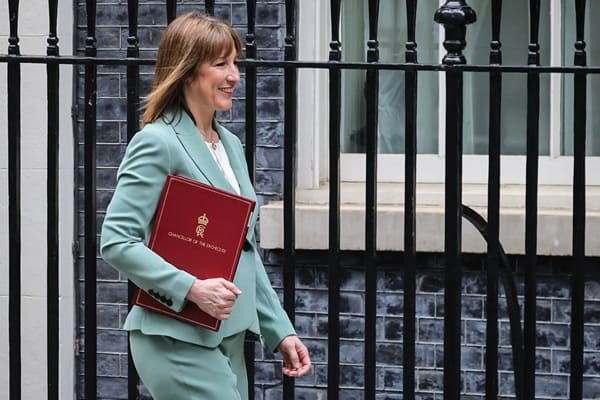Rachel Reeves’ November budget could trigger a talent exodus in the UK and a serious deterrent to recruitment at the very moment the country needs to be competing for the best minds.
The choices the Chancellor makes will define whether Britain positions itself as a global magnet for skills or as a more difficult, less rewarding place to build a career.
The UK has undeniable advantages: world-class universities, deep financial markets, a stable legal framework, and a rich culture of entrepreneurship. But even strong foundations can erode when incentives shift.
In the competition for skilled people, perception is everything, and fiscal policy shapes that perception faster than almost anything else.
If professionals begin to feel that the reward for success is being diminished, they’ll simply take their ambitions elsewhere. There is no shortage of destinations courting them.
From Hong Kong to Dubai, from Milan to Toronto, governments are actively designing tax regimes and visa systems to attract global talent. In that context, every fiscal decision taken in Westminster now carries international consequences.
The expected tightening of tax policy in November reflects a reality that can’t be ignored. The Treasury faces a widening fiscal gap, with forecasts of around £30 billion due to sluggish growth, soft productivity and high debt servicing costs.
The temptation will be to raise revenue from those perceived to have the broadest shoulders. However that approach, if not managed carefully, risks weakening the very sectors that underpin growth and innovation.
The UK is already showing early warning signs. Recruitment activity has slowed, business confidence has softened, and companies are becoming more cautious about adding headcount.
At the same time, a growing number of professionals are exploring opportunities abroad. This is not an ideological concern; it is an economic one. The workforce that drives investment and spending is highly mobile, and once talent migrates, it rarely returns quickly.
Fiscal prudence and competitiveness can coexist, but they must be balanced with precision. A modern economy succeeds when it encourages ambition rather than constrains it.
This does not mean shielding high earners from responsibility, but it does mean recognising that these individuals often drive business formation, job creation, and consumption. If they leave, the tax base eventually shrinks rather than strengthens.
The other critical issue is recruitment. Employers already face pressure from higher input costs and regulatory complexity. Adding uncertainty over future taxation could tip sentiment further.
Many firms are planning 2026 budgets now, and if they anticipate rising payroll taxes or reduced reliefs, their instinct will be to pause hiring or relocate growth projects to jurisdictions with more clarity.
Attracting and retaining talent is not only about tax rates; it is about tone, stability, and consistency. Skilled professionals value predictable policy.
A clear, credible path for fiscal reform would reassure both domestic and international workers that the UK remains committed to being a destination for growth. This confidence is one of Britain’s strongest assets and must be protected.
The global competition for talent is intensifying. Ireland continues to benefit from a low corporate rate and a favourable lifestyle offer. Singapore is targeting senior executives and entrepreneurs with streamlined visa schemes.
The UAE has built an entire economic model around attracting professionals who want security and reward without excessive complexity. The UK does not need to mimic these systems, but it does need to signal that it remains in the same race.
If the November budget prioritises short-term revenue over strategic positioning, the result could be a gradual weakening of the UK’s most valuable resource: its people. Once perception shifts, rebuilding confidence takes years. The opportunity now is to design policy that supports growth while maintaining fairness.
The Chancellor can achieve both by protecting investment incentives, offering stability for high-growth industries, and ensuring that the overall direction of policy rewards contribution and innovation.
Clear communication matters too. Skilled individuals and businesses listen closely to what policymakers say about ambition, entrepreneurship, and aspiration. Words can reinforce or undo years of reputation in a single announcement.
The UK remains an extraordinary place to build a career and a business. Its ecosystem of finance, creativity, research, and global connectivity remains unmatched in Europe. That position should be strengthened, not diluted, by fiscal reform.
A budget that recognises talent as a national asset rather than a tax target would send a powerful signal that Britain is open, confident, and competitive.
The world is entering an age where people, not products, define advantage. Countries that attract, motivate, and retain top talent will lead. Those that fail to value it will lose ground. The November budget is more than a fiscal event; it is a statement about Britain’s ambition.
If it’s framed with clarity and vision, it can secure the UK’s position as a global hub for opportunity. If it’s framed narrowly, focused only on filling short-term gaps, it risks accelerating a slow and costly loss of talent that no economy can afford.






Leave a Comment